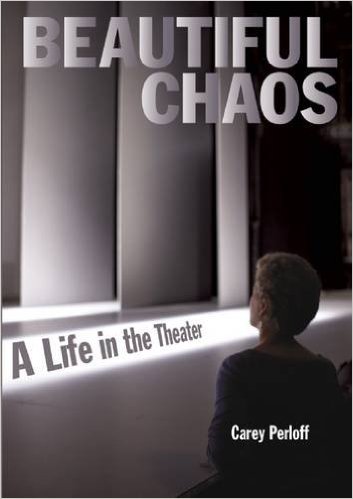Theatrical chaos
Beautiful Chaos is the arresting title of a book by Carey Perloff, on her life and times as director of the American Conservatory Theater in San Francisco. I have a partner with 30 years’ experience as an actor but I have no professional understanding of the theatre; yet the book engrossed me with its insights into the dynamics of the world backstage. (Declaration of interest: Carey is a second cousin of mine, though we’ve never met.)

Two themes in the book struck me particularly. The first is the emphasis put on theatre as a vehicle for lifelong learning. At a technical level Carey describes the changes she made to the training programme for ACT actors, fitting them for a broader range of theatre roles; this would make an excellent case study for anyone engaged in changing professional training. She makes an eloquent case for the part theatrical encounters can have for the public at large, expanding their access to the range of human experience. As for schools, she says:.
“Children who participate in arts at school display better concentration, greater empathy, richer imaginations, and less truancy…Without arts education, there are no future audiences, since without a gateway experience to teach them the pleasures and benefits of interacting with the dramatic arts young people aren’t likely to seek out theatre on their own later in life.”
And so she and her company have made strenuous efforts to involve themselves in schools, especially in areas whose residents wouldn’t normally think of theatre as part of their lives (as it happens, one of my daughters does something similar here for the Royal Opera House).
I would only add that actual participation in the arts has exactly the same kind of effects on adults – maybe not in reducing their truancy levels, but certainly on the other dimensions. Taking an active part in the arts is a wonderful form of lifelong learning. (I went yesterday to the Almeida Theatre’s production of The Oresteia: what a rich source of material for exploring the clash between emotional ties, justice and the harsh demands of power.)
The second theme is the more PP-relevant one: Carey’s experience as a senior woman in the world of theatre. She describes the intense juggling involved in taking on the ACT director’s job a very volatile environment as a mother with a small child, and the incredulous reactions when she became pregnant again early in her time there. She overcame these by drawing extensively on what must be an extraordinarily powerful internal energy source, as well as a very collaborative husband . But there are also passages where she reflects more widely on the cultural aspects of female leadership:
“It was only in the process of writing this book,” she says early on, “that I began to realise how long it actually took me to stop playing at being a man and to acknowledge my own personal point of view on the world and on the work.” And then towards the end of the book she writes:
“I didn’t expect the female angle to figure so strongly until I realized that for a woman to see herself as the center of a narrative is a difficult and unusual task. We are so used to being supporting players that we feel bashful when we take centre stage, Or I certainly did. …. As a culture we tend to remember male successes and female failures, so that women have to succeed over and over again just to stay in the game. And once we have survived, women have to remember to talk about what we’ve learned, so that there is a mirror for the women right behind us.”
As I say, I don’t know Carey personally but my guess is that she would not normally have been thought of as bashful, even earlier in her career. It’s a telling fact that she herself feels that way. The more general point, though, is the one about how success and failure are attributed, not only at Carey’s level as artistic director of a major heater company but at all levels. Most people will not have the chance to explore this through writing a book.
The point is one that I recognise also from several occasions in my own experience, as well as from interviewees for the PP book. The more confident people are – or present themselves as – the more likely they are to be credited with success. Men generally find it easier to do this than women. The confidence often has some kind of relationship with actual performance, but it may be only partially or not at all justified. The result is some very unfair rewards, where confidence is mistaken for achievement, and lack of confidence for incompetence.
Conversely, being aware of one’s limitations has advantages and disadvantages. One of the reasons why women are generally keener to go for training is that they are more ready to acknowledge gaps in their competence. On the other hand, being too hesitant can unnecessarily inhibit you from fulfilling your potential.
The key conclusion I draw from this is not simply that women should have greater confidence in their own records (though this is often the case), but that we need to avoid making ‘confidence’ in the sense of self-promotion such a prominent factor in careers. If the convergence is all towards the male pattern, i.e. of boosting one’s capacity to make one’s own case (NB we are talking generalisations here), there will be a relentless growth in self-marketing, at the expense of intrinsic capability and performance.
In any case, Carey’s point about talking about what has been learned – positively and negatively – is surely the crucial one, and one the book admirably exemplifies.
